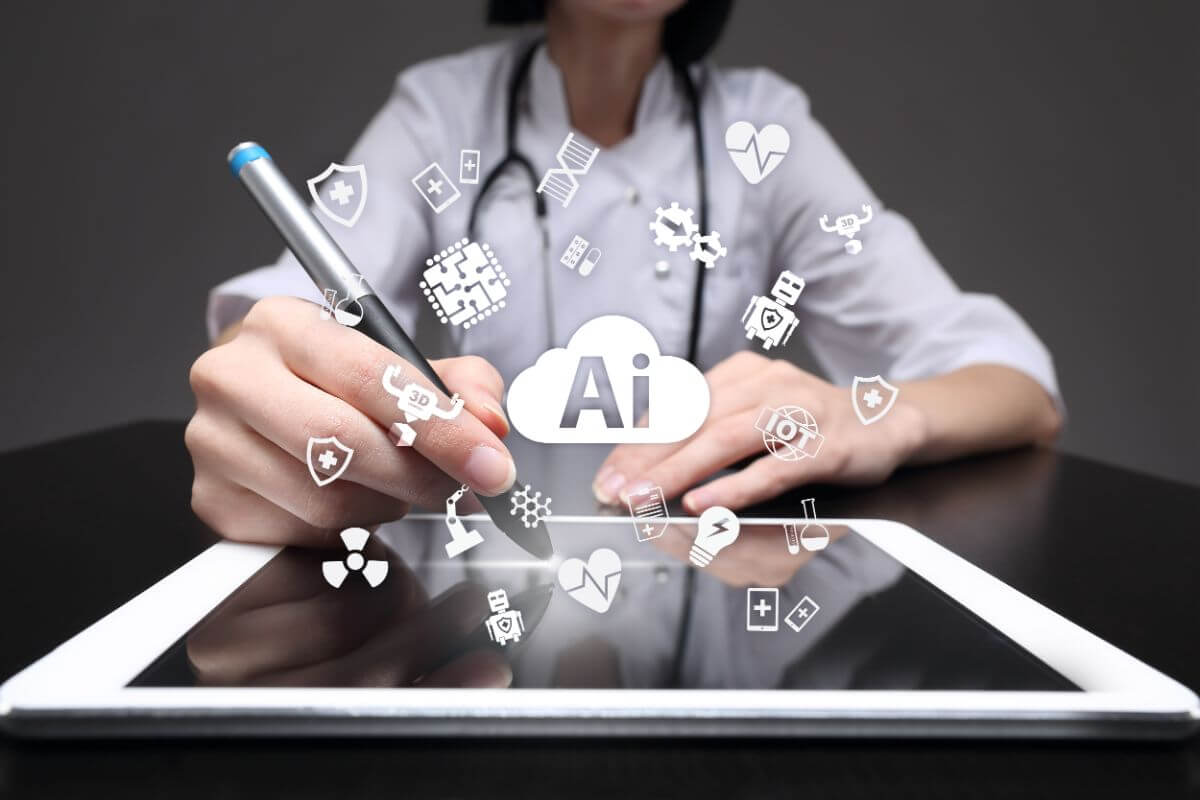When we first try to implement a new technology to an existing field, we tend to think within the present scaffolds leading to an extensive (horizontal) growth rather than an intensive one (vertical). Today, a number of powerful technologies allow us to define some of healthcare’s greatest challenges in terms of data and how we manage it. Artificial Intelligence (AI) is emerging as a rapidly evolving technology and is being seen as widely accepted technology in many fields. Healthcare being one of those areas that hold lots of promise for the application of AI. World-famous companies like IBM, Microsoft, Google and other big healthcare companies are using AI as a technology for the development of cutting-edge solutions. Not only the big players but start-ups belong to this list too. With increasing awareness and usage of Internet of things, wearables, and digitally connected consumers, health data can be generated and collected at a scale we had never dreamt of. Through advances in machine learning (ML) and AI, we have the ability to reason about and utilize this data at an unprecedent- ed scale in order to predict, prevent, and treat more and more diseases and even more efficiently. AI, when applied in healthcare, has the potential to improve the quality of services and lower the cost of quality care. India is perfectly positioned to come up with solutions that could solve the need of the hour issues, with its enormous resource of unstructured health data and population diversity, combined with the vast pool of talented healthcare stakeholders with a right kind of awareness and knowledge in this field. AI in healthcare has huge and wide potential including mobile coaching solutions to drug discovery falling under the umbrella of what can be achieved with machine learning. With this growing technology, we need to figure out ways to harness the power of it and to prevent the misuse of it at the same time.

Newscope
Redefining healthcare: The future of artificial intelligence in healthcare
About InnoHEALTH Magazine
InnoHEALTH Magazine is an RNI (Registrar of Newspapers for India) registered magazine initiated in July 2016 under the InnovatioCuris banner. This magazine focuses on healthcare innovations and has been termed one of its kind in India. The articles composed on the magazine are curated on this website.
Categories
 Get instant updates through our RSS feed
Get instant updates through our RSS feed
- Five Science-Backed Strategies for Healthy and Sustainable Weight Loss
- BEYOND STIGMA: How Menstrupedia is Empowering a Generation of Girls
- Transforming Maternal and Infant Healthcare: A Vision from Janitri’s Founder, Arun Agarwal
- Are Nurses Ready for AI? What’s Missing in Our Hospitals
- Herbal Innovation for Diabetes: Dr. Priyanka Sharma on Medicinal Snacks and Lifestyle Wellness
Recent popular posts
- Advances in Mental Health: Technology’s Role in Stress Management April 15, 2025
- Reimagining Indian Healthcare: A Conversation with Dr. Adil Khan April 22, 2025
- BEYOND STIGMA: How Menstrupedia is Empowering a Generation of Girls May 8, 2025
- Herbal Innovation for Diabetes: Dr. Priyanka Sharma on Medicinal Snacks and Lifestyle Wellness April 28, 2025
Head office address
A-37
Trimala Capital Venture
Sector 63, Noida
Uttar Pradesh – 201301
India
Trimala Capital Venture
Sector 63, Noida
Uttar Pradesh – 201301
India
Phone number
+91 9711777328
Email address
Tags
AI (42)
AIIMS (13)
AI in healthcare (27)
Artificial Intelligence (57)
Ayushman bharat (14)
Blood Pressure (13)
Cancer (15)
COVID-19 (33)
Depression (17)
Diabetes (41)
Digital Health (35)
Drugs (12)
FDA (16)
health (28)
healthcare (99)
Healthcare Delivery (20)
Healthcare Innovation (56)
healthcare technology (17)
Hospitals (13)
India (26)
innohealth (19)
InnoHEALTH Magazine (43)
innovatiocuris (50)
innovation (50)
Internet of Things (20)
IoT (20)
Lifestyle (21)
Machine Learning (28)
Medical devices (19)
Medicine (21)
Mental Health (22)
MRI (13)
Non Communicable Diseases (14)
Obesity (17)
Public health (41)
Startup (18)
Stress (15)
Technology (58)
Telemedicine (25)
Treatment (21)
Tuberculosis (14)
wellness (14)
WHO (30)
World Health Organization (17)
Yoga (16)
Close Menu
- Home
- About us
- Categories
- Magazine volumes
- Endorsed events
- Gallery
- Podcast
- Contact us
- Subscribe Now
